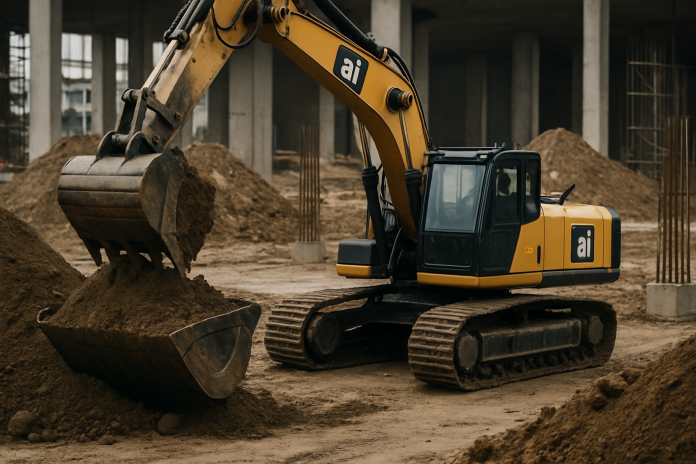Quick Take
- AI slashes construction costs up to 25% and timelines by 50% across India’s property market
- Navi Mumbai project compressed from 5 years to 3 years using AI implementation
- Developer profits rise 10% per project while enabling more affordable housing
- Global construction AI market projected to surge 366% by 2032
- Early adopters positioning for competitive advantage in traditionally slow-tech sector
AI drives down real estate costs while accelerating construction timelines across India
Artificial Intelligence is reshaping India’s real estate landscape, delivering construction cost reductions up to 25% and slashing project timelines by up to 50%. The technology promises to make housing more affordable for buyers nationwide.
Boman Irani, chairman of the Confederation of Real Estate Developers’ Associations of India (CREDAI), shared these figures at CREDAI Natcon 2025 in Singapore. He emphasized how AI-driven efficiencies will directly translate into lower home prices for consumers.
Real Projects Show Dramatic Speed Gains
The impact goes beyond projections. Jay Shah, founder of Kaizen AI, pointed to a Navi Mumbai development where AI implementation cut the expected five-year construction period to just three years – a 40% timeline compression with measurable benefits.
Shah’s company used AI to refine project designs, boosting apartment carpet areas by significant margins while keeping costs efficient. “AI systems simulate multiple planning and execution scenarios, enabling developers to optimize resources and streamline construction processes,” Shah explained.
Profit Margins Climb as Efficiency Improves
Developers using AI technologies report profit increases averaging 10% per project, according to Shah’s analysis. The technology affects every construction phase from initial design through final inspection, delivering efficiencies in traditionally complex tasks like excavation and infrastructure mapping.
Once AI systems achieve full integration, developers can pass cost savings directly to consumers. Irani describes this as a fundamental shift toward economically viable housing solutions.
Global Market Explosion Signals Widespread Adoption
The construction sector’s technological shift reflects broader industry momentum. A StartUs Insights report projects the AI market within construction will jump from $4.86 billion to $22.68 billion by 2032 – representing 366% growth over the decade.
Autonomous machinery, predictive analytics, and AI-driven safety monitoring systems are leading the technologies reshaping construction methodologies globally. This growth trajectory highlights urgent needs for workforce skill enhancement and industry-wide reeducation programs.
Integration Hurdles Challenge Rapid Deployment
Despite promising results, companies face significant obstacles integrating AI with existing construction systems. Firms successfully navigating this transition position themselves to lead markets through enhanced capabilities in managing construction loads and optimizing design parameters.
Regulatory frameworks must evolve alongside technological adoption to ensure safety and ethical standards keep pace with AI implementation. This shift requires technical adaptation plus comprehensive reevaluation of legislative structures supporting AI-driven methodologies while protecting public interest and worker safety.
Traditional Sector Embraces Digital Revolution
The real estate industry, historically resistant to rapid technological change, increasingly views AI solutions as competitive necessity rather than optional advantage. Early adopters show that AI integration goes beyond cost reduction – it represents fundamental reimagining of construction processes.
As technology matures, the construction industry faces both unprecedented opportunities for efficiency gains and challenges in workforce adaptation and regulatory compliance. The sector’s transformation accelerates as developers recognize AI’s potential to reshape not just project economics, but the entire approach to building India’s housing future.






